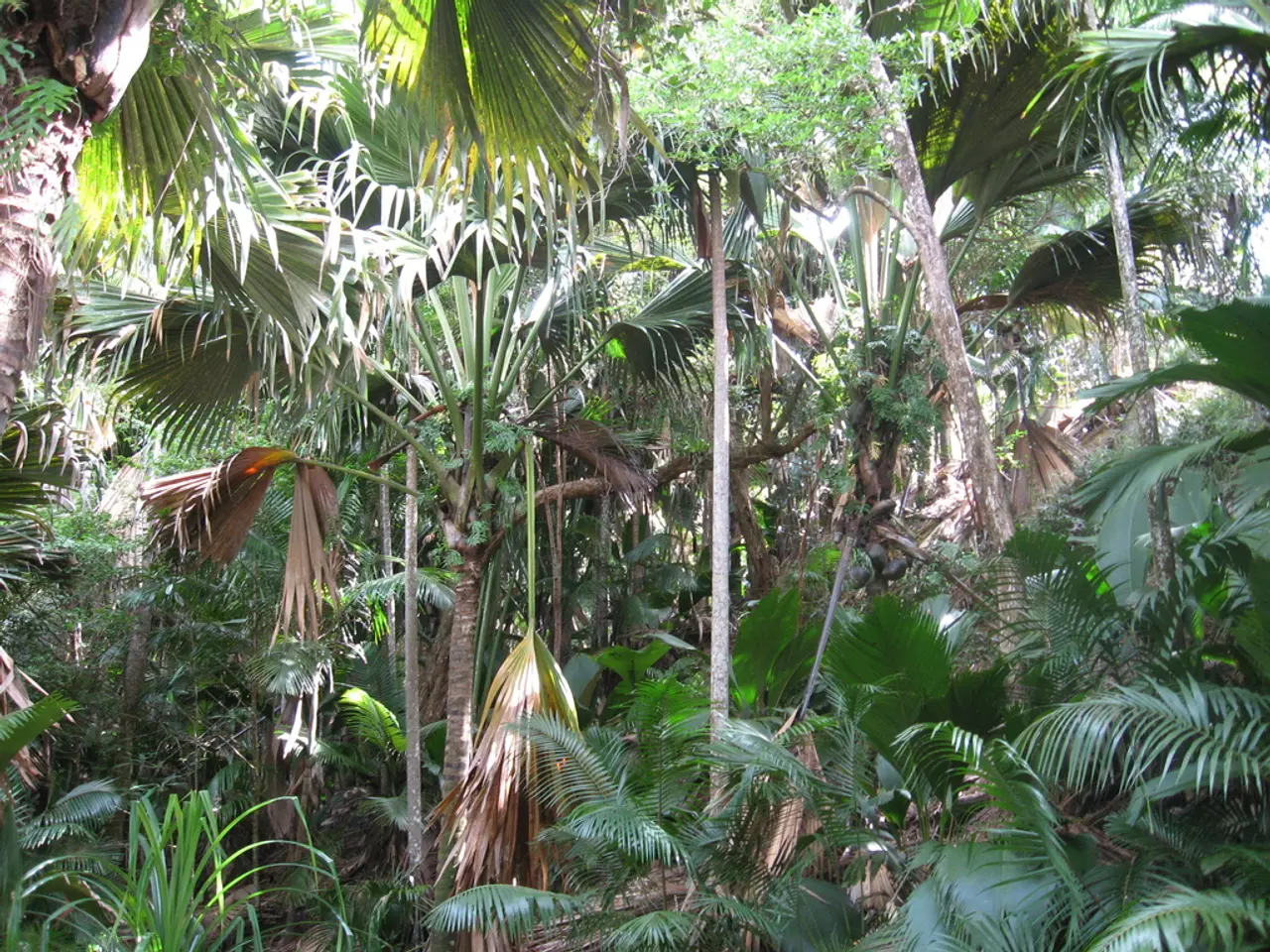Tree Hold A Special Place in My Heart, Yet I Wouldn't Replant It in My Garden Once More
Subtitle: A Guide to Understanding the Drawbacks
The decision to plant a tree in your suburban backyard can be a rewarding one, but it's essential to consider the specific characteristics of the tree in question. When it comes to Eucalyptus trees, their rapid and aggressive growth, high water and nutrient demand, and fire hazard risk make them a challenging choice for typical suburban yards.
Eucalyptus trees are known for their speedy growth, often reaching heights of at least 30-60 feet, with some species reaching as high as 130-180 feet [5]. This rapid growth can make them difficult to manage in the confined space of a suburban yard.
Moreover, Eucalyptus trees are thirsty and require a significant amount of water [6]. Their high water demand can dehydrate the soil and deprive surrounding plants of resources. Additionally, their shallow and spreading roots can cause damage to foundations if planted too close to buildings.
One of the most significant concerns with planting Eucalyptus trees is the fire hazard risk. Eucalyptus trees have oily leaves and shed dead material that can easily catch fire, increasing wildfire risks in fire-prone suburban areas. Their structure can also create "ember catcher" zones that facilitate fire spread [3][4].
Another issue is the invasive tendencies of Eucalyptus trees. They can become invasive, outcompeting native plants and altering local ecosystems, which can be problematic in residential landscaping [4]. It's crucial to consider the potential impact on surrounding plants and trees before planting many common Eucalyptus varieties.
Edwin Dysinger, co-founder of Seedtime, advises being careful when choosing a Eucalyptus variety as some can be invasive [7]. He suggests considering alternatives such as Japanese Maple (Acer) for small gardens or Red Robin Photinia for small patio gardens that can grow in containers [8][9]. Fruit trees such as apple, pear, plum, or cherry trees are also suitable options for small gardens [10].
In conclusion, while Eucalyptus trees have unique characteristics, their drawbacks make them unsuitable for suburban backyards, especially where fire safety and coexistence with other plants are concerns. It's essential to weigh the pros and cons before making a decision to ensure the best choice for your garden.
References:
- Planting Eucalyptus Trees: What You Need to Know
- Eucalyptus Trees: Pros and Cons
- Eucalyptus Trees and Fire
- Invasive Eucalyptus
- Eucalyptus Tree Height and Growth Rate
- Watering Eucalyptus Trees
- Interview with Edwin Dysinger, Co-Founder of Seedtime
- Japanese Maple: The Perfect Tree for Small Gardens
- Red Robin Photinia: The Ideal Tree for Small Patio Gardens
- Fruit Trees for Small Gardens
Eucalyptus trees, with their rapid growth, high water demand, and potential for fire hazards, might pose challenges in managing the home-and-garden lifestyle, making them a less desirable choice for suburban yards. Instead, alternatives like Japanese Maple, Red Robin Photinia, and fruit trees such as apple, pear, plum, or cherry trees could be more suitable options for smaller gardens, promoting a healthier and safer lifestyle.




